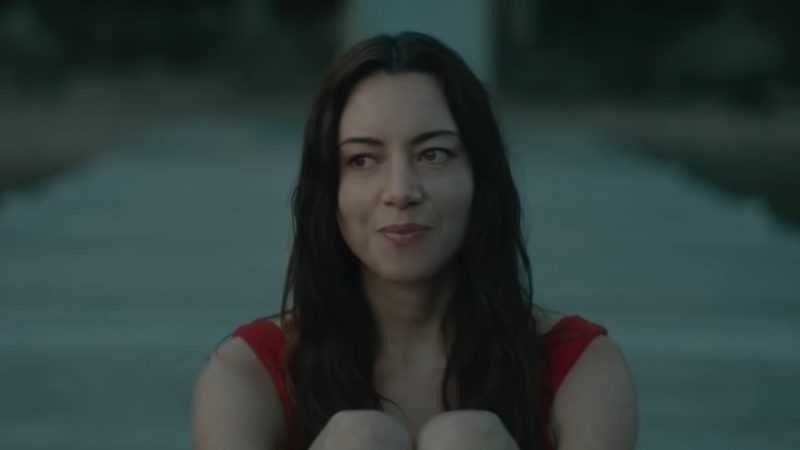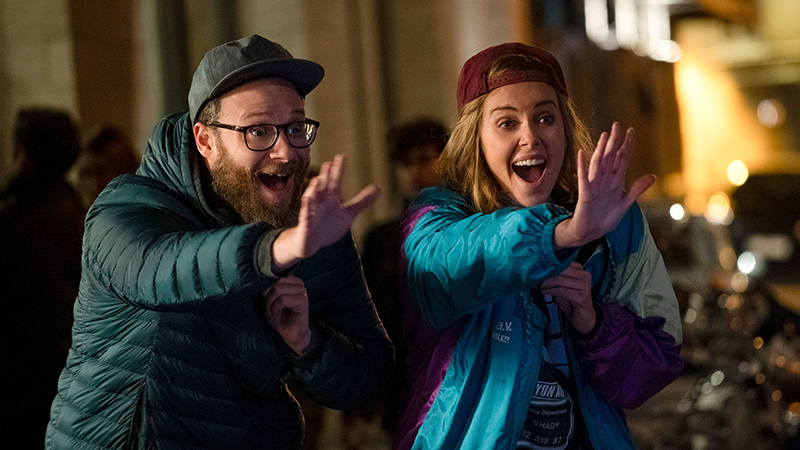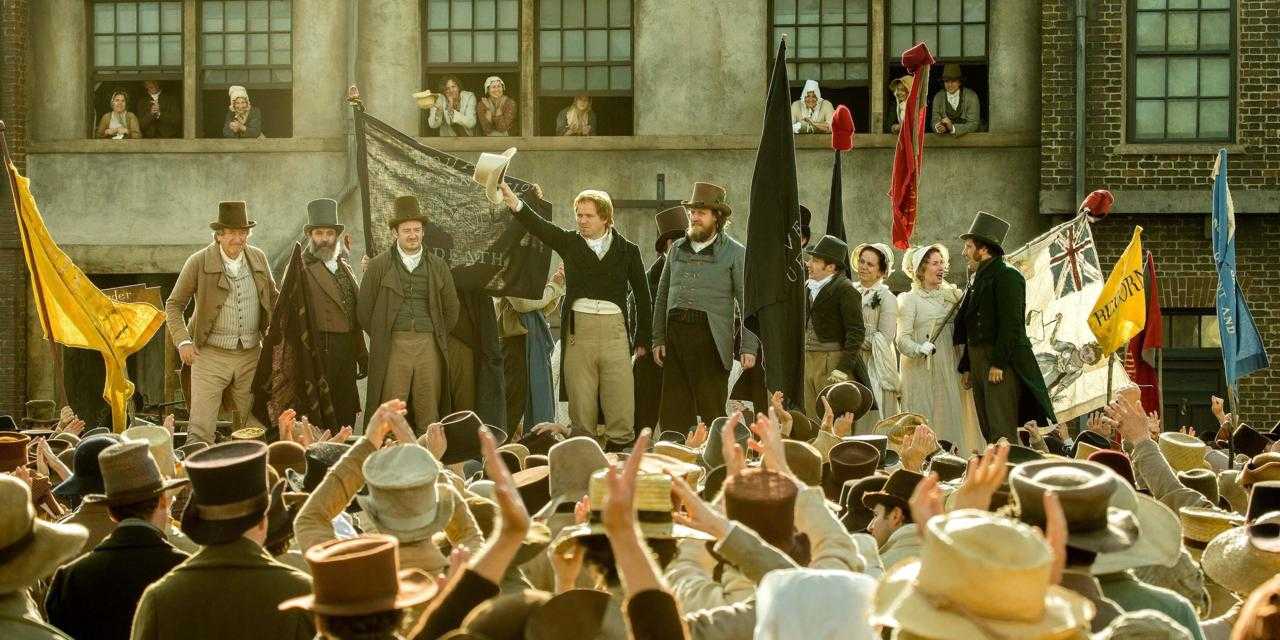One of the biggest and most talked about films to hit Glasgow Film Festival is the long-awaited UK premiere of Black Bear, which may also turn out to be the most head scratching and thought provoking entry yet in the virtual fest. Bursting with a bold commentary on creativity and the creative process, paired with a zany satire of the filmmaking medium, this will undoubtedly spark plenty of debate long after the credits roll.
Directed by Lawrence Michael Levine, Black Bear centres on Allison (Aubrey Plaza), an actor turned writer-director who heads out to a remote lakeside lodge in the hopes of working through her current writer’s block. However, her interactions with the B&B owners, Gabe (Christopher Abbott) and his pregnant partner Blair (Sarah Gadon) spark a heated debate between the seemingly unhappy couple. As the night progresses, desire and jealousy intensifies between the trio, culminating in a potentially disastrous set of events.
Debuting to an overwhelmingly positive response at Sundance Film Festival 2020 and featuring two of my favourite actors, Plaza and Abbott, it’s safe to say I had very high hopes for this film. I specifically avoided watching the trailer and reading any revealing plot points or big reveals, so went into it with an exciting blank slate, not sure what to expect. Honestly I think that’s probably the best way to approach this film, as it’s certainly a thrill ride full of surprising and bonkers twists and turns; so be warned if you’ve yet to watch it.
Opening with Plaza’s Allison sitting at the dock of an atmospheric lake, she quickly retreats into a remote and rustic lakeside cabin, opening her notebook with the intention of beginning to write. Cut to ‘Part One: The Bear in the Road’ and what follows is a hugely tense and compelling relationship driven dramedy which quickly hooks you in. The shifting dynamics between the trio is hugely intriguing and arresting, with a distinct air of unease around Blair, who appears to revel in creating a divide between the owners. While the extended debate sequence plays out in a predictable set of events, it doesn’t lessen the shocking crescendo.
But what follows is a completely unexpected U-turn, resulting in one of the more bonkers twists yet. Cutting to ‘Part Two: The Bear by the Boat House’ Levine reveals that events which have transpired have all been part of a film shoot, only Allison and Brie’s roles have been reversed. What follows is a hugely meta and provocative commentary on filmmaking, as events on the film set once again take a turn for the worst. The trippy and somewhat ambiguous climax leaves you with plenty of questions, resulting in a baffling ending which is notably open to interpretation depending on the viewer.
The whole film rivals that of a fever dream, and as you unpack events, questioning what’s real and what isn’t, it’s clear that this is very much a film delving into the writer’s mind. The film within a film and two act structure does give a certain air of pretentiousness to events, but Levine’s willingness to fully commit to the wildly shifting perspectives, combined with the central trio’s versatility in their dual roles, results in a captivating puzzle piece.
Aubrey Plaza brings her signature intensity and wryness to Allison, along with a surprisingly distinct underlying pain and disappointment – particularly in the second act. Her chemistry with indie King Christopher Abbott is hugely palpable in the first act, wildly contrasting with the volatile (and bordering abusive) nature of their relationship in the second. This is certainly a different role for Abbott, who appears to revel in the dastardly turns as director and husband, while Sarah Gadon is also excellent as opposing versions of Blair.
Verdict
Black Bear is an ambitious, unexpected and allegorical piece of filmmaking from actor turned director Lawrence Michael Levine, with a phenomenal turn from Aubrey Plaza. However the closing moments will undoubtedly divide viewers, with Levine leaving the film’s conclusion open to your own interpretation.




